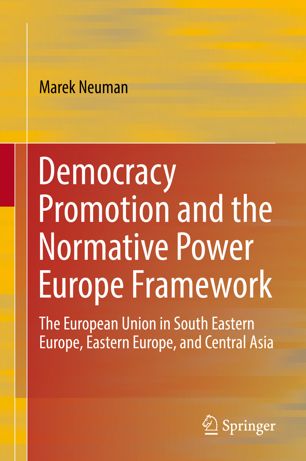

Most ebook files are in PDF format, so you can easily read them using various software such as Foxit Reader or directly on the Google Chrome browser.
Some ebook files are released by publishers in other formats such as .awz, .mobi, .epub, .fb2, etc. You may need to install specific software to read these formats on mobile/PC, such as Calibre.
Please read the tutorial at this link: https://ebookbell.com/faq
We offer FREE conversion to the popular formats you request; however, this may take some time. Therefore, right after payment, please email us, and we will try to provide the service as quickly as possible.
For some exceptional file formats or broken links (if any), please refrain from opening any disputes. Instead, email us first, and we will try to assist within a maximum of 6 hours.
EbookBell Team

0.0
0 reviewsThis book presents a topical, holistic assessment of the European Union’s democracy promotion in South-East Europe, Eastern Europe, and Central Asia, analyzed through the prism of the Normative Power Europe (NPE) framework of transnational policy formation. To do so, it brings together three scholarly domains that traditionally stand apart and are discussed separately. The first addresses the notion of the European Union conducting a normatively-driven foreign policy both near and far abroad. The second is concerned with the legitimacy, operationality, and effectiveness of promoting democracy in third-world countries. The third addresses the quality of the relationship the European Union has been able to establish with some vital – yet often troubled – countries in South-East Europe, Eastern Europe, and Central Asia. Finally, based on the empirical findings presented in each chapter, this volume concludes by rethinking the concept and relevance of NPE to the field’s understanding of the EU’s foreign policy making. This edited volume offers the reader both a theoretically and empirically rich analysis of the European Union’s efforts to promote democracy abroad. As such is scholars and students of EU studies, particularly EU foreign policy, as well as policy makers at EU and national level and civil society representatives responsible for designing/implementing democracy promoting projects on the ground.